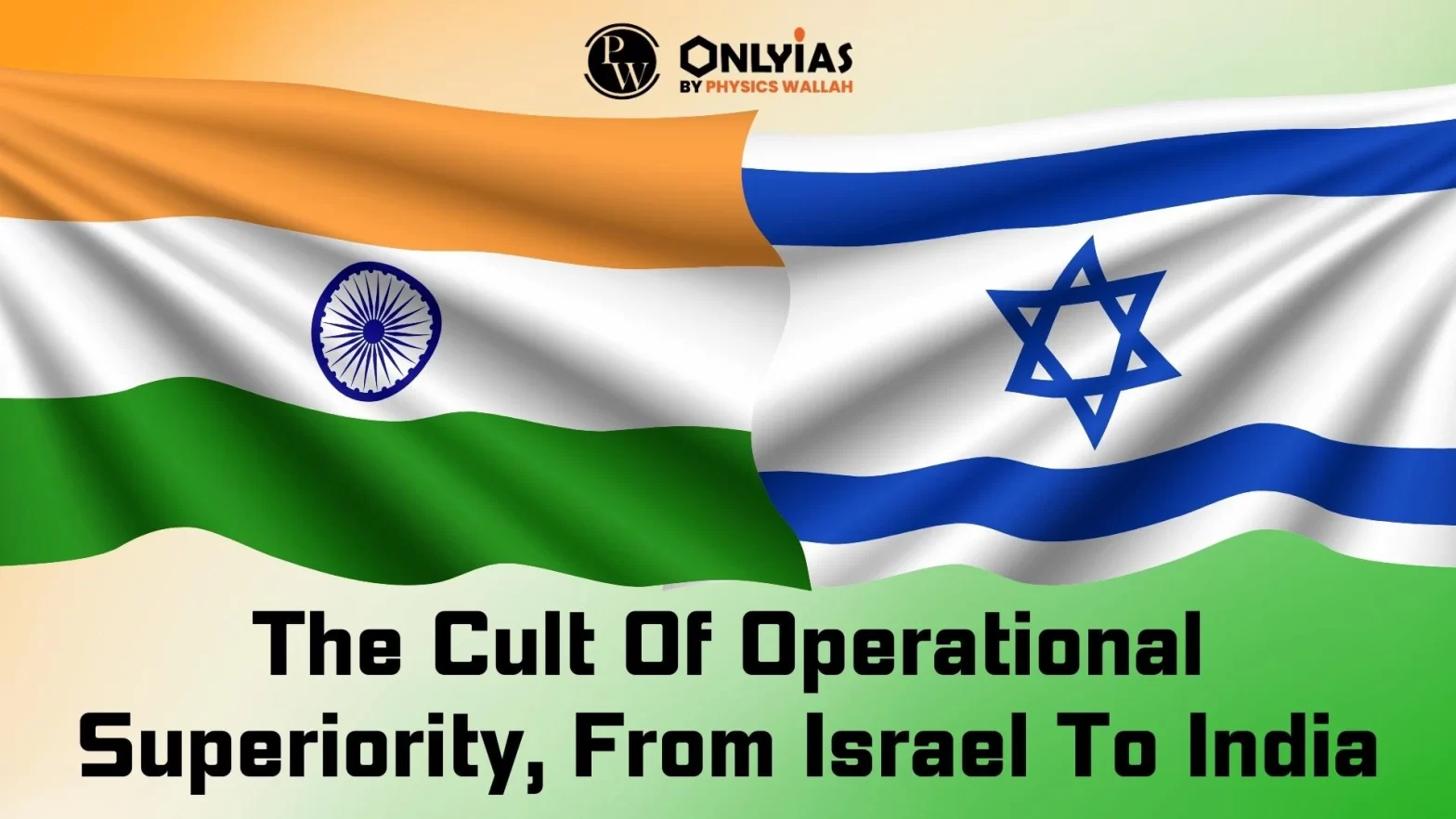Context:
- This article is based on an Editorial “The cult of operational superiority, from Israel to India” which was published in the Hindu. In the recent attack of Hamas on Israel, it has been observed that managing a strategic threat through purely military means works only on a temporary basis, which India must note to deal with her neighbors, especially Pakistan.
| Relevancy for Mains: Cult Of Operational Superiority, Importance of Political Relations between Countries, Role of Non-state Actors in Creating Challenges to Internal Security. |
Chronic Management of Palestinian Conflict
- Israel’s Strategy: Israel conducted periodic limited air campaigns into Gaza, aiming to weaken Hamas and other militants.
- Outcome: While this strategy provided temporary relief, it did not offer a lasting solution.
- Political Neglect: Israel abandoned the two-state solution and inadvertently supported extremists, such as Hamas, over more moderate Palestinian forces.
- Consequences: This approach backfired when Hamas demonstrated the ability to inflict significant damage.
- Key Lesson: Neglecting political solutions and relying solely on military superiority can perpetuate conflict and violence.
India’s handling of Pakistan
- Defense Efforts: India redirected its military resources, including the repurposing of a Pakistan-facing Strike Corps for the China border.
- Operational Superiority: India invested in military technologies, punitive attack options, and enhanced capabilities, influenced by its association with Israel.
- Neglect of Political Solution: India has refrained from addressing the threat politically, emphasizing that it won’t engage in talks with Pakistan as long as cross-border terrorism continues.
- Lesson from Israel: Israel’s experience underscores the importance of not disregarding the political dimensions of a rivalry, as ignoring them can encourage the adversary to persist.
Also Read: Hamas Attack on Israel: Lessons For India to Learn
The Path Ahead
- To Reduce Tensions: Dialogue will at least help in calming tensions with India and distancing themselves from extremist groups and also incentivises them to focus on economic stability, building capacity to counter anti-state terrorism, and reducing their dependence on China.
- To Build Confidence: Starting a political dialogue could address a range of pressing issues, from nuclear and missile confidence-building measures, to coordination on Afghanistan, and opening the spigot on trade and investment.
- A Hybrid Path: India must maintain and reinforce deterrence of conflicts not only by managing a strategic threat through purely military means but also by engaging in political processes.
Also Read: National Security Strategy
Conclusion:
The Israel-Hamas conflict highlights the pitfalls of relying solely on military superiority without addressing the underlying political dimensions, emphasizing the need for India to adopt a comprehensive approach involving both military and political strategies in handling tensions with its neighbors, particularly Pakistan.
![]() 7 Nov 2023
7 Nov 2023

